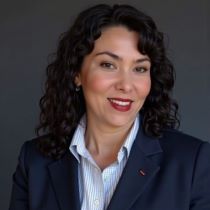 |
Center for Nonlinear Studies |
The Born-Oppenheimer (BO) approximation has long been a cornerstone of quantum chemistry, enabling efficient calculations by separating electronic and nuclear motion. However, for strongly coupled quantum systems—such as high vibration and rotational interactions, or exotic states involving metal complexes—the BO approximation falters, necessitating non-BO approaches that capture electron-nucleus coupling with high fidelity. The frontiers of (nearly) exact non-BO algorithms will be discussed by illustrating fundamental advancements in computational quantum chemistry through exploring a suite of innovative algorithms that transcend BO limitations, leveraging symmetry-adapted wave functions and advanced correlation methods. Central to the non-BO approaches are antisymmetrizer and symmetrizer operators, which enforce fermion and boson spin and spatial symmetry within a Young tableau framework, suffering from factorial dependency on the number of identical particles. This is where computational complexity remains a critical challenge for non-BO calculations and simulations; a challenge that a quantum computer might be able to assist with solving. Finding a way to retain all chemically relevant information in a computation while effectively eliminating all multiplications with 0s in permutation matrices - in polynomial time - while not assuming the BO approximation will revolutionize the computational chemistry industry at large. By highlighting breakthroughs in and by pushing the boundaries of non-BO quantum chemistry, it is possible to reveal new insights into spectra and reaction dynamics. This talk will illuminate fundamental principles and pave the way for next-generation simulations of quantum systems and highlight how these algorithms might also be used to help improve noisy intermediate scale quantum devices.
Bio:
Dr. Keeper L. Sharkey, Ph.D.
Founder & CEO, ODE, L3C
https://www.linkedin.com/in/klshark/
Dr. Keeper L. Sharkey is a quantum chemist and entrepreneur with deep expertise in theoretical chemistry, quantum computing, and artificial intelligence. She is the Founder and CEO of ODE, L3C, a quantum research and technology company developing high-precision quantum virtualization platforms for modeling chemical systems at the electron-nucleus level. Her work integrates quantum mechanical simulations with AI to deliver chemically accurate, approximation-free solutions for complex molecular phenomena. Dr. Sharkey earned her Ph.D. in Chemistry with a focus on Chemical Physics from the University of Arizona, where she continues to serve as Designated Campus Colleague, Associate Research Faculty. She has authored over three dozen peer-reviewed articles on non-Born-Oppenheimer calculations using explicitly correlated Gaussian basis functions. Her research bridges fundamental quantum mechanics with real-world chemical applications such as molecular spectroscopy, materials design, and catalyst optimization. As a National Science Foundation Graduate Research Fellow and NSF I-Corps Entrepreneurial Lead, she has long championed translational research.
She is the author of Quantum Chemistry and Computing for the Curious, which illustrates quantum and computational chemistry concepts through Python and Qiskit code, one of three books she has published. Most recently, Dr. Sharkey has served as the quantum chemistry subject matter expert (SME) for MIT’s Computer Science and AI Lab (CSAIL) and the Initiative on the Digital Economy, collaborating with Accenture on the groundbreaking “Quantum Crown Jewels” project. This initiative is focused on identifying the specific chemistry algorithms and use cases most likely to achieve quantum economic advantage, building on insights from the influential Quantum Tortoise and the Classical Hare framework.
Dr. Sharkey also leads national efforts in secure quantum innovation as Chair of the IEEE P1947 Working Group on Standards for a Quantum Cybersecurity Framework and as Chair of the InfraGard National Cross-Sector Council on Quantum Technologies and Cybersecurity. Her work spans quantum sensing, post-quantum cryptography, and the protection of AI-enabled critical infrastructure. During 2024, she served on organization committees for four workshops hosted by Quantum Economic Development Consortium (QED-C) partial funded by National Institute of Standards and Technology. Her company ODE, L3C is a co-founding member of the QED-C. Her multidisciplinary expertise in quantum chemistry, AI, and cybersecurity makes her a uniquely impactful voice at the intersection of advanced technologies and chemical engineering innovation.
People who would like to schedule a meeting with Dr. Sharkey can sign up for it in this shared google sheet, which will be made editable soon.
Host: Paolo Braccia (T-4) and Elizabeth Peterson (T-4)